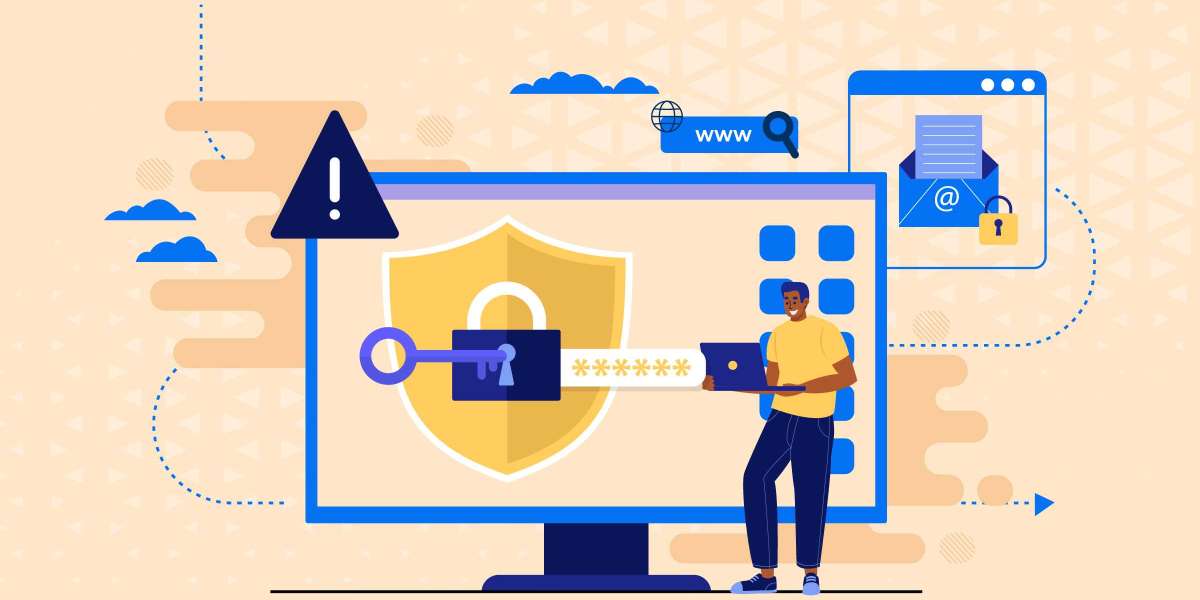In today's digital world, where businesses rely heavily on technology and interconnected networks, the significance of endpoint security cannot be overstated. Endpoint security is the process of securing all devices that connect to a corporate network, including computers, laptops, mobile devices, and servers. These endpoints serve as entry points for potential cyber threats, making them a prime target for malicious actors seeking to gain unauthorized access to sensitive company data.
A breach in endpoint security can lead to devastating consequences for businesses, both financially and reputationally. Cyberattacks can result in data theft, financial loss, operational disruption, and even legal liabilities. Moreover, a compromised endpoint can serve as a gateway for hackers to infiltrate an entire network, potentially wreaking havoc on an organization's infrastructure. Therefore, understanding the importance of endpoint security is paramount for businesses of all sizes, as it plays a vital role in safeguarding valuable assets and preserving the integrity of corporate networks.
Common Challenges Faced in Managing Endpoint Security in Corporate Environments
Endpoint security is a critical aspect of protecting corporate environments from cyber threats. However, managing endpoint security can pose several challenges for organizations. One of the main challenges is the sheer number of endpoints that need to be secured. In large corporate environments, there may be hundreds or even thousands of devices, including desktops, laptops, smartphones, and tablets, all connected to the network. Ensuring that each of these endpoints is properly protected requires significant time and resources.
Another common challenge in managing endpoint security is the complexity of today's threat landscape. Cyber attackers are constantly evolving their tactics and techniques, making it difficult for organizations to keep up. New malware variants and sophisticated ransomware attacks can easily bypass traditional security measures, leaving endpoints vulnerable. Therefore, organizations need to invest in advanced endpoint protection solutions that can detect and mitigate emerging threats, as well as regularly update their security measures to stay ahead of attackers.
In addition to these challenges, employee behavior and awareness also play a role in endpoint security. Human error, such as clicking on malicious links or downloading untrusted applications, can inadvertently lead to a compromise of endpoint security. Ensuring that employees are well-trained and educated about best practices for endpoint security is crucial for minimizing the risk of breaches.
Overall, managing endpoint security in corporate environments requires a comprehensive approach that addresses the multitude of challenges organizations face. By investing in advanced threat detection tools, regularly updating security measures, and educating employees, organizations can enhance their endpoint security posture and better protect their valuable data.
Key Components of an Effective Endpoint Security Strategy
Endpoint security is crucial for any organization as it helps mitigate the risk of unauthorized access, data breaches, and malware attacks. To develop an effective endpoint security strategy, it is essential to identify the key components that form its foundation. One such component is robust antivirus and anti-malware software. These tools play a vital role in protecting endpoints by scanning for and eliminating any malicious software or code that may have infiltrated the system. Regular updates and patches ensure that the software remains equipped to handle the latest and emerging threats.
Another important component of an effective endpoint security strategy is strong access control measures. This includes implementing authentication methods like two-factor authentication or biometric authentication, ensuring that only authorized users have access to critical systems and data.
Additionally, the deployment of firewall solutions provides an added layer of protection by regulating incoming and outgoing network traffic, preventing unauthorized access and data exfiltration. Combining these access control measures with comprehensive employee training on cybersecurity best practices can significantly reduce the risk of endpoint breaches caused by human error or social engineering attacks.
• Robust antivirus and anti-malware software
- Scans for and eliminates malicious software or code
- Regular updates and patches to handle emerging threats
• Strong access control measures
- Two-factor authentication or biometric authentication
- Only authorized users have access to critical systems and data
• Firewall solutions
- Regulates incoming and outgoing network traffic
- Prevents unauthorized access and data exfiltration
• Comprehensive employee training on cybersecurity best practices
- Reduces risk of endpoint breaches caused by human error or social engineering attacks
Best Practices for Endpoint Security Management in Corporate Environments
When it comes to endpoint security management in corporate environments, implementing best practices is crucial to safeguarding sensitive data and protecting against potential threats. One of the key best practices is to regularly update and patch all endpoint devices within the organization. This includes not just computers and laptops, but also mobile devices such as smartphones and tablets. By ensuring that all devices are running the latest operating systems and software versions, companies can close known vulnerabilities and reduce the risk of cyberattacks.
Another important best practice is to enforce strong password policies and multi-factor authentication protocols for all endpoint devices. Weak or easily guessable passwords are a common entry point for hackers, so encouraging employees to use complex passwords and regularly change them is essential.
Additionally, implementing multi-factor authentication adds an extra layer of security, requiring users to verify their identities through a combination of passwords, biometric data, or other unique credentials. This can significantly reduce the risk of unauthorized access to corporate resources and sensitive data.
Implementing Endpoint Protection Measures to Safeguard Company Data
Endpoint protection measures play a crucial role in safeguarding sensitive company data from potential cyber threats. By implementing these measures, organizations can effectively secure their endpoints, such as desktops, laptops, and mobile devices, from unauthorized access and malicious activities.
One key component of endpoint protection is the use of robust antivirus and antimalware software. These tools help scan and identify any potential threats or suspicious activities on the endpoints and prevent them from causing harm. Along with this, organizations should also regularly update their antivirus software to ensure protection against the latest threats.
In addition to antivirus software, organizations should also consider implementing firewalls on their endpoints. Firewalls act as a barrier between the internal network and external threats, monitoring and filtering incoming and outgoing network traffic. With properly configured firewalls, organizations can block unauthorized access attempts and control the flow of data, reducing the risk of security breaches.
Furthermore, organizations should enforce strong password policies and encourage the use of multi-factor authentication to enhance endpoint security. By requiring complex and unique passwords, and incorporating additional authentication factors such as biometrics or security tokens, organizations can significantly reduce the risk of unauthorized access to sensitive company data.
Developing a Comprehensive Endpoint Security Policy
Developing a Comprehensive Endpoint Security Policy is an essential step for any organization striving to protect its sensitive data and systems from potential threats. This policy serves as a blueprint for establishing the rules and guidelines governing the usage and protection of endpoints within the corporate environment. By outlining specific protocols and procedures, an effective policy ensures that all employees are aware of their responsibilities in maintaining the security of endpoints and are equipped with the necessary knowledge to mitigate risks effectively.
When developing a comprehensive endpoint security policy, there are several key factors to consider. First and foremost, organizations need to clearly define the scope and objectives of the policy, taking into account the unique needs and challenges of their specific industry and environment. This includes identifying the types of endpoints covered by the policy, such as laptops, desktops, mobile devices, and servers, and determining the level of security measures required for each.
Additionally, the policy should address potential vulnerabilities and threats, such as malware attacks, unauthorized access, and data breaches, and provide guidelines on how to minimize these risks through regular updates, security patches, and encryption protocols.
FAQ
What is endpoint security?
Endpoint security refers to the protection of endpoints, such as laptops, smartphones, and tablets, from cyber threats. It involves implementing measures to secure these devices and the data they contain.
Why is endpoint security important?
Endpoint security is important because endpoints are often the entry point for cybercriminals to gain unauthorized access to a company's network. By having a comprehensive endpoint security policy, organizations can safeguard their sensitive data and prevent security breaches.
What are some common challenges in managing endpoint security in corporate environments?
Common challenges in managing endpoint security in corporate environments include the complexity of managing a large number of devices, ensuring compliance with security policies across different operating systems and platforms, and dealing with the constant evolution of cyber threats.
What are the key components of an effective endpoint security strategy?
The key components of an effective endpoint security strategy include regular software patching and updates, the use of antivirus and anti-malware software, implementing strong access controls and authentication protocols, and educating employees about cybersecurity best practices.
What are some best practices for endpoint security management in corporate environments?
Some best practices for endpoint security management in corporate environments include implementing a layered approach to security, conducting regular vulnerability assessments and penetration testing, monitoring endpoint activity for suspicious behavior, and having a response plan in place for security incidents.
How can we implement endpoint protection measures to safeguard company data?
Endpoint protection measures can be implemented by deploying endpoint security software, encrypting sensitive data, enforcing strong password policies, using remote wiping capabilities for lost or stolen devices, and implementing data loss prevention measures.
How can a comprehensive endpoint security policy be developed?
A comprehensive endpoint security policy can be developed by conducting a thorough risk assessment, defining clear security objectives and requirements, involving key stakeholders in policy development, regularly reviewing and updating the policy, and providing training and awareness programs for employees.



